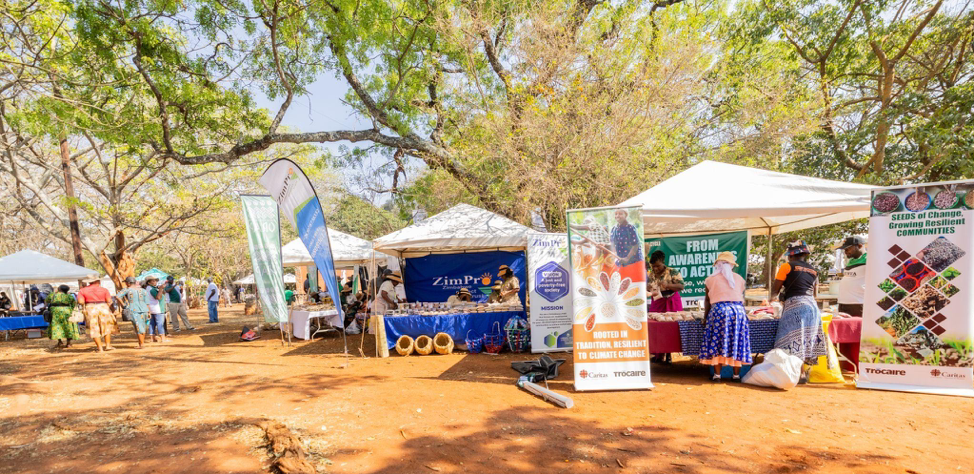
The National Good Seed and Food Festival is more than an event but is a vibrant and growing movement rooted in Zimbabwe’s rich agricultural and cultural heritage.
Coordinated under the Zimbabwe Seed Sovereignty Programme and co-organized by PELUM Zimbabwe and Bio Innovation Zimbabwe, the festival brings together farmers, entrepreneurs, and communities to celebrate food and seed sovereignty, promote agroecology, and inspire healthier, more sustainable eating. Held this year under the theme Nurturing our Future, Reviving our Heritage, the festival acted as a living classroom, a marketplace, and a cultural revival.
Among the many voices at the festival, smallholder farmers stand at the heart of this transformation. Precious Matsheza (57), a farmer from Mwenezi district working with PELUM Zimbabwe member Mwenezi Development Training Centre (MDTC), shares how the event has revitalized her passion for traditional agriculture.
“As a farmer, participating in the Good Seed and Food Festival gives me a chance to celebrate our agricultural heritage. It fills me with pride to showcase the hard work we put into our crops and to share our traditions. We have the opportunity to display a variety of our traditional seeds at our stalls. During this time, we get to interact with many people, sharing our knowledge about traditional foods. Through our displays, we teach people about and share knowledge of our indigenous foods and seeds,” explains Precious.
Beyond showcasing her produce, Precious emphasized the inspiration and learning she gained from fellow farmers and festival goers.
“Being around other farmers and people who love farming inspires me to try new things and get better at what I do. It feels great to share ideas and see what other farmers are doing and it makes me want to improve and do my best. We also get to trade seeds with other farmers from other communities and talk about how to make our work better,” she says.
She credits the Zimbabwe Seed Sovereignty Programme (ZSSP) for the vital support to smallholder farmers.
“I am so happy to be working with PELUM Zimbabwe, especially since they have been advancing agroecology for the past 30 years through programmes such as the ZSSP. They have been supporting smallholder farmers, helping us grow and thrive in our traditional practices,” she says.
The festival also resonates with young agroecologists like Whitney Mudzingwa (22), a third cohort participant of African Women Leaders in Agroecology (AWOLA), another PELUM initiative aimed at spearheading agroecology through women empowerment.
“The festival has deepened my understanding of indigenous foods and their importance in our diets. It’s inspiring to see how these foods can contribute to a healthier lifestyle. Additionally, I have picked up some amazing ideas from entrepreneurs at the festival. Their innovative approaches to agroecology motivate me to think creatively about my own projects. Overall, this festival is a fantastic opportunity for learning, sharing, and connecting with passionate people in the agroecology community,” she says.
For Shean Mukocheya Simango (51), founder and director of Ziva Kwakabva Trust, the festival is essential for the agroecology community’s success.
“I believe that festivals like this are vital for our success. They provide a unique platform for us to showcase our products and connect with other farmers who appreciate local and sustainable farming,” she says.
As the festival continues to grow each year, it carries with it the hopes and heritage of a nation committed to reclaiming its food systems. It is a celebration not only of seeds and harvests, but of knowledge, resilience, and community. The National Good Seed and Food Festival is sowing more than crops but seeds of sovereignty, pride, and a healthier future for Zimbabwe.







